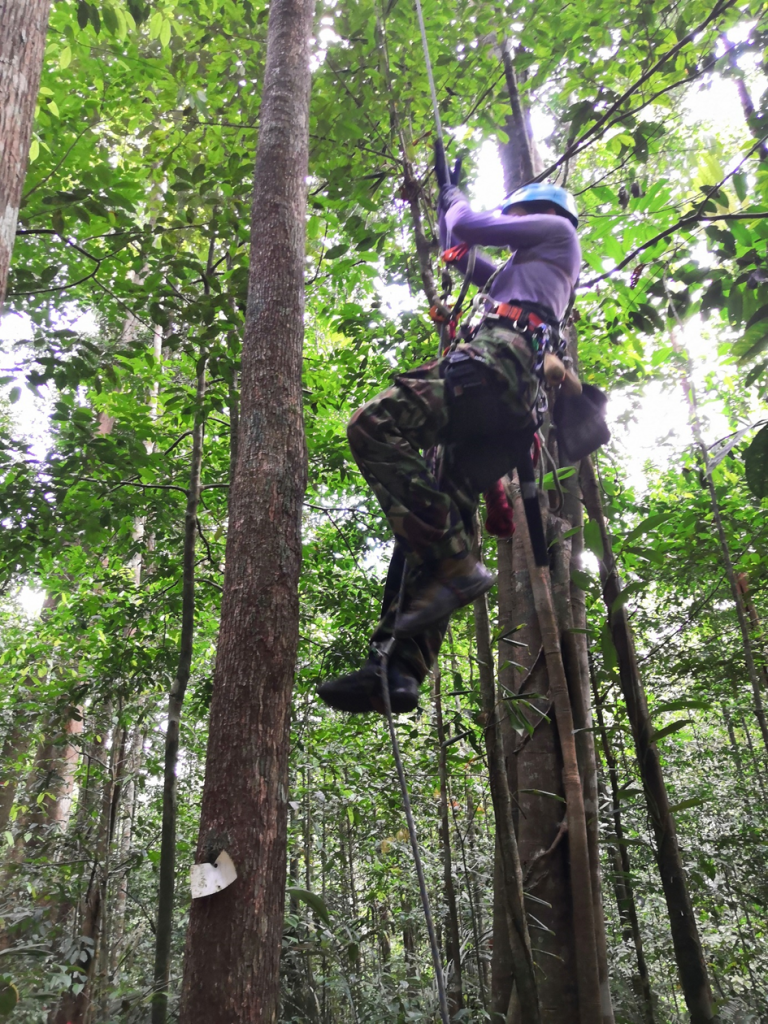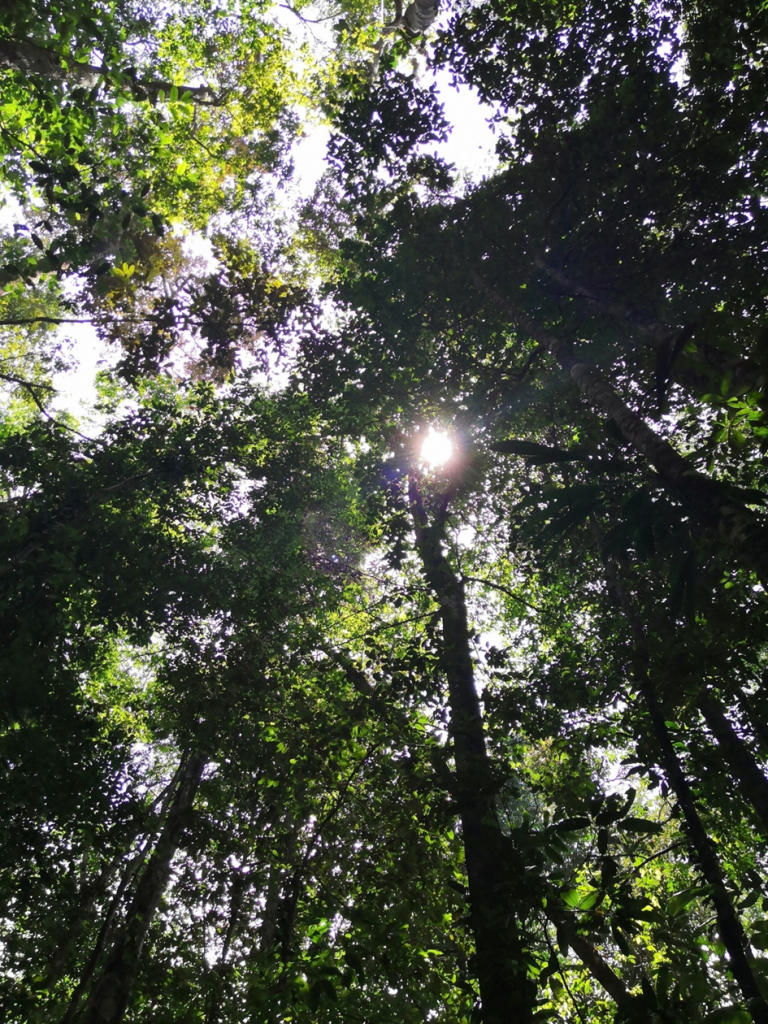In our latest blog post, Guangqi Zhang, postdoc at INRAE (France), presents his paper “Not all sweetness and light: non-structural carbohydrate storage capacity in tree stems is decoupled from leaf but not root economics”. He discusses the importance of considering multiple traits, shares his happiness for the publication of his research, and encourages ecologists to keep moving with eastern philosophy.
About the paper
Plant functional traits impact tree fitness indirectly via their effects on growth, reproduction and survival, influencing species’ ecological strategies. As products of photosynthesis, non-structural carbohydrates (NSC) should be coordinated with tree economics, but their association with economic traits may differ because of the role played by NSC in different organs. In this paper, we investigated the coordination of functional traits, including NSC, by measuring suites of traits characterizing leaves, stems and coarse roots across angiosperm tree species from forests with different climates. Our study showed that stem xylem design and NSC storage capacity led to a stem economics spectrum that is largely independent from the leaf spectrum, but is coupled with that of coarse roots, highlighting the independence of stem NSC in tree functional strategies.
The idea for a paper requires a lot of literature reading and discussion with colleagues. Several studies have reported resource economics trade-offs in different tissues; however, few studies have directly examined the relationship between NSC and the economics spectrum in trees, and whether NSC in different organs is coordinated with economic traits. Coupled with the focus on NSC in our previous work, the idea for this paper came naturally. We hope that our paper will reach a wide audience of plant ecologists and ecophysiologists, and we believe that our work could enrich the understanding of how tree species allocate resources at the whole-plant level.

About the research
Our study explored the role of NSC in resource allocation trade-offs from the whole-tree perspective and across forests in different climates, providing a more comprehensive understanding on the trade-offs between NSC use, its storage and trait features. At the same time, the amount of work and measurement of traits in this research has been quite challenging. Leaves, stems and coarse roots were collected from 270 trees distributed in forests across three biomes and up to 24 functional traits were measured. Nonetheless, we eventually completed all the sampling and found suitable methods for measuring the traits and we are proud of our study.
Biotic factors, such as the effects of herbivores and pathogens, may contribute to the lack of a consistent, whole-tree economics spectrum, as the physiological response of different organs to natural enemies may differ, leading to different patterns of growth, photosynthesis and primary metabolism. A future study considering both biotic and abiotic factors would be important to disentangle plant ecological strategies across multiple scales.

About the author
I am currently a postdoctoral researcher at the National Research Institute for Agriculture, Food and Environment (INRAE) in France, working on how tree cambial growth and anatomical traits are affected during climate and environmental changes, especially in drought conditions. What initially led me down the path of scientific research was a project I was involved in during my final year of undergraduate studies. It was an ecology project that focused on the response of plants to drought, and it was through this project that I wrote my undergraduate thesis. Although it was only a review, it sparked my interest in ecology. I officially started my ecological research journey during my Master’s degree and eventually obtained my PhD in ecology from the University of Montpellier, France. I was very fortunate to have such helpful PhD supervisors, and they have accompanied me well throughout my scientific research journey. A heartfelt thanks to Dr. Alexia Stokes, for her conscientious and kind supervision during my PhD and to Dr. Zhun Mao, who has always been passionate about research and inspired me when I was in a negative mood about my work. There is a Chinese proverb: if you don’t experience wind and rain, how can you see a rainbow? The same is true for scientific research. It may not always be smooth sailing, but if you persevere, you get the reward one day.


